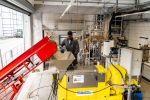-
-
-
-
-
-
rezemo GmbH - 26/06/2020
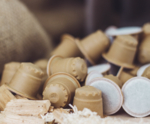
In Germany alone, around three billion disposable coffee capsules made of aluminium and plastic are sold every year. This creates a gigantic waste problem, as only a small proportion of the capsules can be recycled. Fully compostable wooden coffee capsules might be a solution to this problem. The capsules have been developed by a start-up company called rezemo, which also has other biobased packaging solutions in the pipeline.
https://www.biooekonomie-bw.de/en/articles/news/coffee-capsules-wood-instead-aluminium
-
Producing valuable new products from waste materials - 07/01/2020
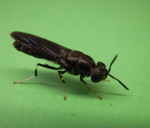
Eco-friendly and responsibly manufactured products are more in demand than ever before. Specific research is being carried out into materials and applications for a wide variety of uses. The Fraunhofer Institute for Interfacial Engineering and Biotechnology IGB is working with Hermetia Baruth GmbH on the vision of an insect biofactory that uses waste materials to produce a wide range of products such as biosurfactants, animal feed or foils.
https://www.biooekonomie-bw.de/en/articles/news/A-vision-insect-biorefineries-as-components-of-a-sustainable-bioeconomy
-
Article - 12/03/2019
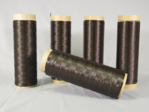
Carbon fibre is increasingly found in airplanes, cars and wind turbines. Carbon fibre is still made from oil and relatively expensive. However, this is soon to change. Researchers from the German Institutes of Textile and Fibre Research in Denkendorf (DITF) are working on the development of cost-effective carbon fibre made of lignin, a by-product of papermaking.
https://www.biooekonomie-bw.de/en/articles/news/biocarbon-fibres-made-of-lignin
-
Dossier - 20/03/2017
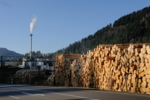
Petroleum is the raw material for basic chemicals. Growing demand and dwindling resources mean that the chemical industry is increasingly focusing on renewable resources. Lignin is a wood component that is proving to be a promising resource. It is currently almost exclusively used for generating energy, although it could also be used for other purposes. In Baden-Württemberg, a research consortium is specifically focused on exploring its…
https://www.biooekonomie-bw.de/en/articles/dossiers/lignin-a-natural-resource-with-huge-potential
-
-
-
Website address: https://www.biooekonomie-bw.de/en/search
